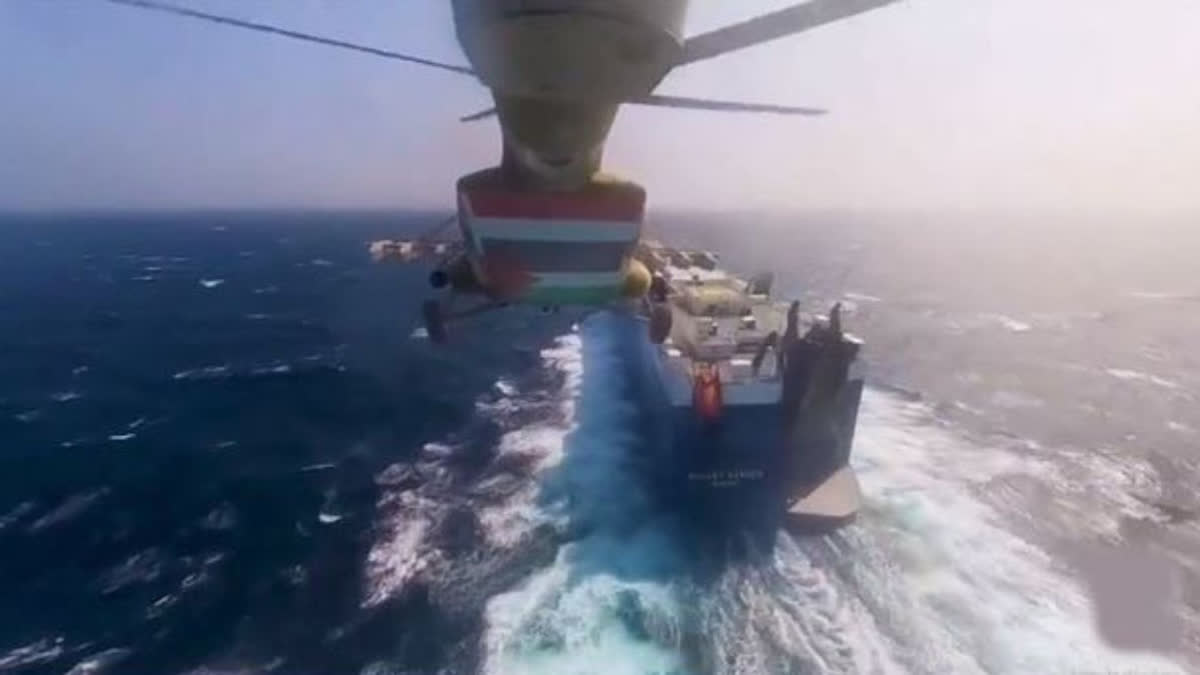Kanpur: Indian exporters, precisely those who are from Kanpur, are staring at exorbitant freight rates as shipping lines continue to avoid the Suez Canal route due to the attacks on cargo vessels by Yemen’s Houthi Group in the Red Sea.
The exporters said constant attacks on vessels by the Iran-backed rebels caused high inflation and a steady increase in costs of capital goods and raw materials.
Europe is the second largest market for Indian exporters after the USA. The movement of Houthis, who are supported by Hamas in the Red Sea, exacerbated the freight hike issue.
Yemen's Houthi rebels mainly target ships of countries which are Israel's allies. Due to this, India's exporters are largely affected. The despatch of Indian goods to Europe is largely affected as the Red Sea is the viable route for shipments. The Indian cargo ships which usually take 22 days to reach Europe are now reaching the continent in 35 days.
The inordinate delay caused a sharp increase in freight charges and exporters are facing the heat. An exporter said they are forced to dump goods and a huge amount of goods are still stuck in the sea.
Describing the plight, Assistant Director of the Federation of Indian Export Organisation (FIEO) Alok Srivastava said that Kanpur's annual business from Europe is worth Rs 300 to 400. "Over the past one week, orders worth Rs 300-400 crore of exporters have been dumped, while products worth about Rs 100 crore got stuck," Srivastava said.
The FIEO assistant director said Europe is the second largest market for Kanpur from the export point of view. Many types of products are despatched as exports from Kanpur to Europe as well as to other 27 countries. However, due to the volatile situation in the Red Sea, the market is badly hit.
According to Leather Sector Skill Council Chairman Mukhtarul Amin, due to the Read Sea impasse, leather traders are facing an acute crisis. "Now, we are left with the option of shelling out more bucks. It pinches our pockets," Amin said.
Leather businessman Javed Iqbal echoed the same. "We are looking for new markets to expand the leather business but it's not easy. First, the Russia-Ukraine war, then the worsening of the situation in Israel and now the Houthis attack in the Red Sea aggravated the financial crisis," Iqbal said.
Why is the Red Sea so important?
The Red Sea Route is the shortest waterway for ships travelling from Asia to Europe as freight charges are low. Now, Indian ships are being asked to ferry goods to Europe via South Africa and Morocco. The new route is time-consuming and it will increase the freight charges.
Goods worth Rs 3,500 to Rs 4,000 crore are exported to Europe annually. Containers of 20 to 40 feet are used in the shipment. The freight charge in Indian currency was earlier Rs 700, which has now reached Rs 3,500.
Read More
- Explained: Impact of Houthi's attack on merchant navy vessels in Red Sea
- Houthi attacks on ships passing through Red Sea: How it will impact Indian economy
- Yemen's Houthi attacks: Can US-led alliance keep Red Sea shipping route safe?
